Animal welfare: a science or not?
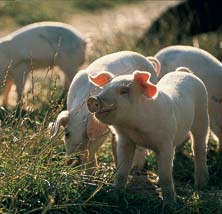
Treating animals with care and respect is very important and (I hope) there is hardly any discussion about its importance in animal production. But there seems to be a discussion going on whether ‘animal welfare’ is considered a real science or just a combination of values, emotions and interpretations. But does it really matter?
By Emmy Koeleman
According to Frauke Ohl, Professor of Laboratory Animals Animal welfare at the Veterinary Faculty of Utrecht University,©the Netherlands, animal welfare is not a scientific concept, but the reaction of a social value system that people developed to express their concerns about how animals are treated. Debates on animal welfare therefore have always two elements to it, according to Ohl: the biology of the animal and the values of humans. But these two elements do not always tie-up.©
Is hunger natural?
Let’s take restricted feeding of breeding sows as an example. According to a report by an animal welfare organisation in the Netherlands, these animals simply are HUNGRY and are therefore suffering. In other words, the animal welfare is compromised for these animals. This sounds logical, but biologically speaking, hunger is a natural stimulus, says Ohl. To top that, hunger is a necessary response to certain stimuli and ensures that animals forage and show normal feeding behaviour. With this in mind, you could say that restricted feeding matches more with the ‘natural’ situation of the animal. Problems only arise when the animals can not express their normal feeding or foraging behaviour or when animal health is compromised (the report names the unlimited feeding practices in broilers as an example of this).©
Human filter
Then we have the second element: human values. The biological facts about animals (such as the hunger feeling) are being filtered by humans according what they think (or learned) is good or bad. But what determines the thresholds? The social perceptions on animal welfare are not only culture, time, place and context-dependent, but one same person can handle different views about animals in different contexts as well. So there are no standard values. But the real problem is far more principled, states Ohl. Characteristics of animals, including behaviour, have been developed in a very complex natural environment. Humans in turn select certain desirable characteristics and keep the animals under conditions which are different that nature. Some discussions about natural behaviour in controlled farm conditions are therefore always tricky. Should we aim for letting the animals express their natural behaviour or do we need to set new standards for behaviour based on farm conditions?
Different views today
Speaking at the recently held IPVS congress in Vancouver, Canada Dr David Fraser from the University of British Colombia tried to explain his definition of animal welfare. According to animal welfare expert Fraser, the term animal welfare has three elements to it 1) the affective states, which are pleasure, pain, suffering and happiness. 2) natural living, which entails that the animals should have a life that suits the animal’s natural adaptations and 3) the basic health, including the freedom of disease and proper feeding and water supply. Different than Professor Ohl, Fraser does say that animals should be able to express their natural behaviour, even if they are not in their natural environment. Fraser also believes that animal welfare, just like any other discipline, deserves a place in the scientific approach to animal husbandry. “Topics such as husbandry and housing are sort of lost in today’s animal science programmes, but animal welfare really is a practical discipline in that respect and not just an issue which is based on emotions.”
Multi discipline approach
I tend to agree with David Fraser. As far it is practical we should be able to strive that animals can express their natural behaviour and if restricted feeding practices fit in this and is best for the animal, that’s fine. Whether this is good for average daily gain and feed efficiency, this can be measure easily, but to include the ethical side of this issue is more complicated and needs more research. For most scientists it is difficult to include emotions, cultures and personal interpretations in factual science as it is difficult or even impossible to measure. Maybe social science and animal science faculties should team up more on the animal welfare topic to find out what’s best for both farmer, animal and consumer.
Join 18,000+ subscribers
Subscribe to our newsletter to stay updated about all the need-to-know content in the pigsector, three times a week. Beheer
Beheer

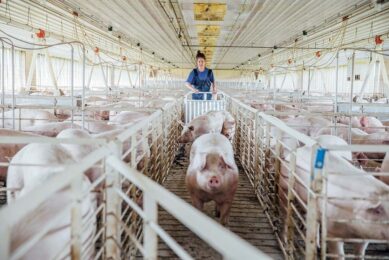
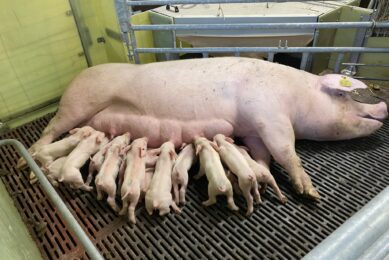
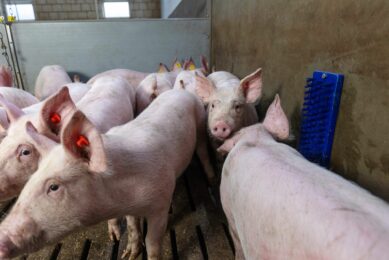
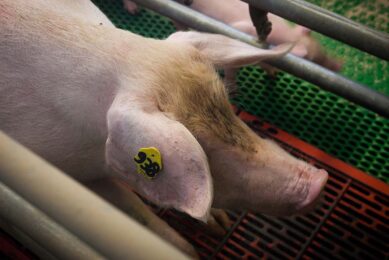





 WP Admin
WP Admin  Bewerk bericht
Bewerk bericht